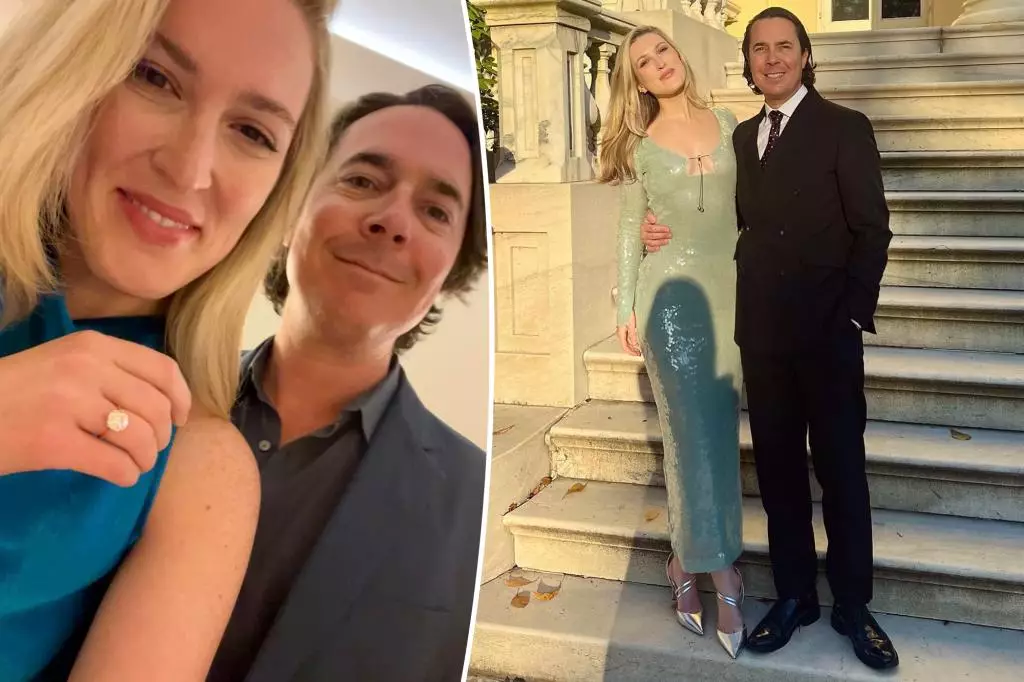The latest scandal in the political journalism arena has brought to light a dramatic fallout between two prominent figures, Olivia Nuzzi and Ryan Lizza. Their very public implosion has not only captivated the media landscape but has also raised significant questions about ethics, personal relationships, and the repercussions of intertwining one’s career with romantic entanglements. This article delves into the layers of this complicated saga that has unfolded in the spotlight of Washington, D.C.
Olivia Nuzzi, formerly a reputed correspondent for New York Magazine, recently found herself amid scandal when details of her alleged affair with Robert F. Kennedy Jr. came to light. The affair, underscored by intimate FaceTime exchanges, had all the elements of a classic romance report, yet it was rooted in a web of deception and professional risk. Adding fuel to this fiery narrative, Nuzzi took a bold step by requesting a restraining order against her ex-fiancé, Ryan Lizza, a fellow journalist who had been privy to the secrets behind her facade.
Nuzzi’s claims in court were striking; she accused Lizza of explicit threats to expose her personal life with the intention of ruining her professional reputation. Such actions raise ethical concerns that resonate far beyond the personal turmoil. The lines between public and private have been starkly blurred, posing critical questions about the responsibilities and credibility of journalists in maintaining their integrity.
In a sudden turn of events, Nuzzi retracted her restraining order application, citing fears for her physical safety and well-being. Her attorney suggested that disengagement from such legal battles could provide greater protection for her. This withdrawal, however, might be seen as an admission of frailty in her claims, inviting skepticism regarding her initial accusations. In a world where public personas are carefully curated, the decision to step back can have significant ramifications both personally and professionally.
Conversely, Lizza condemned Nuzzi’s actions, framing her as a manipulative figure employing courtroom antics as a self-serving public relations strategy. His vehement denial of her allegations delineates a well-established trope of deflection often seen in public figures embroiled in scandal. Lizza emphasized that he was prepared for a vigorous defense of his character. Given that two journalists were involved, the implications of their public spat extend to considerations of ethical standards in media, leaving audiences to wonder who tells the truth when personal interests collide with professional reputations.
Even amid these personal controversies, the professional fallout has been palpable. Nuzzi’s departure from New York Magazine, after a brief leave of absence following revelations about her affair, suggests that the consequences of intertwining personal drama with professional obligations can be severe. Media organizations typically uphold strict codes of conduct, and deviations can lead to swift disciplinary actions. The magazine confirmed that initial inquiries found no bias in her work, yet decided that parting ways was the best course of action.
Public perception is a hard commodity to regain once compromised, and Nuzzi now faces the arduous task of rebuilding her professional image while navigating this turbulent chapter of her life. The crossroads between personal life and career is intricate, especially for someone who resides in the contentious political landscape of D.C., where reputations are often held on a precarious edge.
The saga of Olivia Nuzzi and Ryan Lizza serves as a cautionary tale for journalists and public figures navigating the tricky waters of personal relationships in high-stakes environments. Such entanglements can yield not only emotional strife but also detrimental impacts on one’s career and credibility. As the intricacies of their relationship continue to unfold publicly, the broader implications for standards of conduct within journalism leave the industry grappling with the question of how to balance personal authenticity with professional integrity. In the end, this dramatic fallout may well serve as one of the defining narratives of contemporary media ethics in the twenty-first century.
